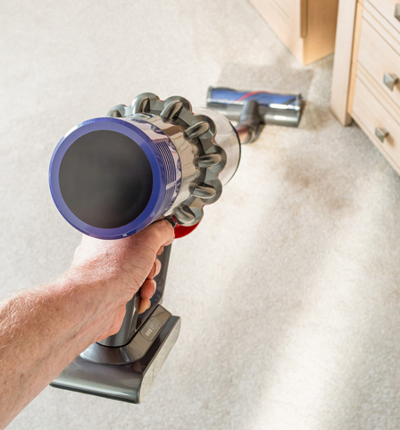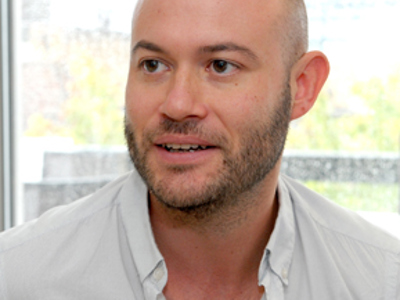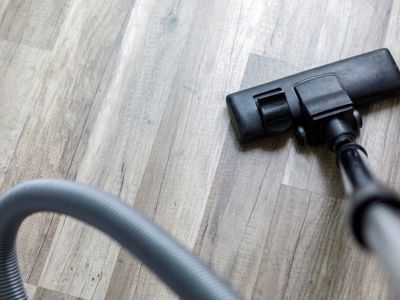
Migrant workers’ case to proceed in English courts following Supreme Court refusal of Dyson appeal
The Supreme Court has refused to grant Dyson permission to appeal a Court of Appeal ruling that allegations of forced labour and dangerous conditions at two Malaysian factories which made electronics products for the company can be heard in the English courts.
Posted on 08 May 2025
The Supreme Court rejected Dyson’s application to appeal the ruling made by the Court of Appeal in December 2024 that the legal claim by migrant workers at the two Malaysian factories can be heard in the UK, finding that the application did not raise a point of law of general public importance.
The decision, which comes almost three years after the claim was issued, removes the final barrier delaying the claims from proceeding before the English courts. The High Court will now hear evidence of the allegations of modern slavery and false imprisonment in factories that supplied Dyson and issue a judgment on whether Dyson should be liable for the human rights abuses allegedly present in their supply chain. Dyson denies that it is responsible for any of the allegations of unlawful working practices.
The Court of Appeal decision stands as strong precedent which will make it difficult for UK-headquartered companies to challenge jurisdiction in claims relating to human rights, labour abuses and environmental claims abroad. The judgment also further confirms that the English courts are the leading jurisdiction in which claimants are able to access justice for business and human rights related issues stemming from the international operations of UK companies.
The claim against Dyson is being brought by 23 migrant workers and the estate of one deceased migrant worker who worked at factories operated by two supplier companies, ATA Industrial and Jabco in Johor, Malaysia, where many Dyson products were made. The factories were operated by ATA and Dyson denies that it is responsible for any unlawful acts of ATA Industrial and Jabco.
The Nepalese and Bangladeshi workers, who worked at the factories between 2012 and 2021, allege they experienced forced labour, false imprisonment, assault, battery, cruel and degrading treatment and exposure to extremely hazardous working conditions and abusive living conditions. Dyson says in 2019 it investigated claims of abusive labour practices and determined they were not substantiated and disputes that it had knowledge of any wrongdoing since 2019. However, in November 2021, Dyson announced that it had terminated its contract with the supplier factories after receiving the results of a 2021 Environmental and Social Responsibility audit of compliance with Dyson’s supplier code of conduct, and a whistleblower complaint regarding “unacceptable actions by ATA staff, including an Executive Director of ATA, that had allegedly taken place on 28th June 2021”.
In 2023 the High Court ruled that the case should be heard in Malaysia rather than England after Dyson, which now has its headquarters in Singapore, challenged the right of the English courts to hear the claims. Dyson argued there was not a sufficient connection to the UK for the case to be heard in the English courts, pointing to the fact that any alleged wrongdoing by its suppliers happened in Malaysia and that Malaysian law applies. Dyson also argued that since the claimants will have access to justice in Malaysia, the claims should be heard there.
In November 2024, the workers took their case to the Court of Appeal, arguing the claims should be heard in the English courts as they relate to alleged harm caused by decisions and policies made centrally in the UK by Dyson UK companies and personnel. The claimants, who are extremely impoverished, also argued that there is a substantial risk that they would not be able to access justice in the Malaysian courts, partly because of their inability to fund a legal claim and to obtain suitable legal representation prepared to take on their case in Malaysia. This contrasted with the legal representation available to the claimants in England, where Leigh Day is acting for them on a ‘no-win-no-fee’ basis.
Following this hearing, in December 2024 the Court of Appeal accepted the claimants' arguments on jurisdiction and overturned the previous High Court ruling. The Court of Appeal made clear that English companies whose operations cause damage abroad can be held to account in the country where they are based, and that substantial inequality of resources between the parties in other countries will be considered by the English courts when deciding whether to allow claims to proceed here. The Supreme Court’s decision now means the substantive case can now proceed towards a trial in the High Court in London.
The civil negligence and unjust enrichment claims are being brought against three Dyson companies within the Dyson Group: Dyson Technology Limited and Dyson Limited, based in Malmesbury in Wiltshire, and Dyson Malaysia in Johor Bahru near to the ATA Industrial and Jabco factories.
The claimants are represented by partner Oliver Holland of law firm Leigh Day, with barristers Marie Louise Kinsler KC and Tom Fairclough of 2 Temple Gardens and Edward Craven KC of Matrix Chambers.
One of the claimants, Dhan Kumar Limbu, said:
“I am very happy that the Supreme Court has ruled that our case can be brought in the English courts. It is our belief that we were treated appallingly and made to suffer terrible working conditions in these factories. The justice system in England has established a benchmark around the world for allowing the voices of people like us to be heard. We now hope it will enable us to achieve justice for the suffering we had to endure.”
Leigh Day partner Oliver Holland said:
“The Supreme Court has now backed the Court of Appeal and ruled that our clients can seek justice in a place where they believe they have a fair chance of holding Dyson to account for its alleged role in the abuses and horrendous conditions they endured.
“This case underscores the importance of multinational corporations ensuring they have full knowledge of the conditions in their global supply chains.
“Our clients welcome the ruling that their claims can proceed in the English courts and look forward to them being resolved as soon as possible so they can get some recompense for what they lost and move on with their lives.
"The Supreme Court’s rejection of Dyson’s permission to appeal application affirms the Court of Appeal judgment and we hope it will make defendants think twice about challenging jurisdiction in other claims which only serves to delay justice."
Andy Hall, Independent Migrant Worker Rights Specialist, said:
“The Supreme Court’s final decision to reject Dyson’s appeal efforts, again seeking to deny the UK court's jurisdiction in the migrant workers’ forced labour claim against them, is another moment of hope for vulnerable foreign workers looking to hold big businesses accountable in the English courts.
“Given these former ATA workers couldn’t achieve justice and compensation for their abuse before now, the workers hoped the UK courts would enable their case to be heard in the English courts. The UK justice system, in the end, despite lengthy delays, has not disappointed them.
“Given the decision by the Supreme Court, the former ATA workers finally now have an important legal channel to pursue their claim.
“The decision of the Supreme Court to deny Dyson’s appeal has again sent a strong signal that companies cannot escape responsibility by outsourcing their production to countries like Malaysia, where migrant workers find it difficult to access justice and remediation.”
Related Content

Oliver Holland
Oliver is a partner in Leigh Day's international and environment teams. Oliver's practice covers environmental harm, human rights, modern slavery & consumer litigation, including expertise in conflict of law issues & cross-border disputes.

Court of Appeal confirms allegations of forced labour and dangerous conditions at Malaysian factories making products for Dyson can be heard in UK
The Court of Appeal has today ruled that a legal case brought by migrant workers against Dyson regarding allegations of forced labour and dangerous conditions at two Malaysian factories, which made electronics products for Dyson, can be heard in the English courts.

